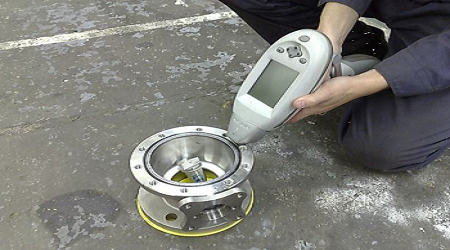Applications:
Today, many major oil companies require that every pipe, flange, connector, valve and welding seam in critical parts of the plant be measured to verify that materials match engineering specifications. In addition to compatibility issues, several other reasons can exist for material specification including design, corrosion resistance, and compliance to codes and standards such as ASME Boiler and Pressure Vessel Code.
It also finds applications in the following areas:
Aerospace Manufacturing: Aerospace Castings, Aerospace Fastener QA / QC & Failure Analysis.
Electric Power Industry: Plant Inspection, Failure Analysis PMI, Incoming Materials, In Stock Materials & In service Testing.


